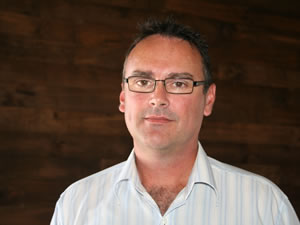
Water plan leaves a bitter taste
Wednesday 27 July 2011

Water plan leaves a bitter taste

- Council outlines water plan
- Resorts identified for water savings
- Public expectation for chlorine-free trial remains
The launch of an $11 million water management plan for Port Douglas and Mossman has been peppered with questions on whether residents really need educating on water preservation.
Tuesday’s Cairns Regional Council launch at Port Douglas’ historic Sugar Wharf used the picturesque backdrop of the Dickson Inlet and surrounding mountains to sell their “Our Water, Our World-Famous Backyard” plan to a public gathering, with addresses from Cairns Regional Council deputy mayor, Margaret Cochrane, Division 10 councillor, Julia Leu, and CRC Douglas Regional Manager, Liz Collyer.
The Council’s plan outlined:
- $7.6 million to be spent by Council and the Federal Government on a range of water management initiatives by June 30, 2012 within Division 10;
- Multi-million dollar upgrades to existing water infrastructure and on planning for new sources of water in the Port Douglas/Mossman region;
- $1.5 million to be spent on the Port Douglas Storage and Trunk Infrastructure Project, estimated to be completed by 2013;
- $1.1 million towards a pilot program for advanced water meters in Port Douglas by 2012;
- $110,000 for a scoping study to identify future water sources;
- $274,000 for a leak detection repair programme;
- $205,000 for a pressure management programme.
A $386,000 education campaign was also outlined to educate the Port Douglas and Mossman communities on how to save water, with $270,000 of the funding for the education program coming from CRC, the Federal Government chipping in with $173,000.
The former Taste on Macrossan shop (in the Saltwater Building on Macrossan Street) will be used to house copies of the plan for a public consultation period, despite the nearby CRC-owned Port Douglas Community Centre lying vacant for extended periods.
But it was at the end of proceedings the hard questions were asked by locals as to whether it was the residents who needed to be educated, or whether more responsibility lay with the area’s resorts and their guests to conserve water.
CRC water and waste general manager, Bruce Gardiner, admitted there was a need to broaden a marketing campaign to include the area’s resorts to address the installation of dual-flush toilet cisterns during refurbishments and re-educating resort operators to water extensive gardens outside of peak evaporation periods.
Friends of Douglas Shire representative, Michael Gabour, posed questions at the end of the launch to Mr Gardiner on why Council was spending money on education programmes and whether money allocated towards a long-awaited chlorine-free water trial was ever going to be utilised.
“This is a different issue,” Mr Gardiner said. “We’ve got to start at the demand end and go through to the supply end.
“Water usage is at a high at the moment and that costs money. It’s in everyone’s best interests to reduce demand by putting in a water-smart programme.
“But our water systems been running better than ever recently, including a 7% reduction in water usage through leak detections.”
Division 10 councillor, Julia Leu, said the expectation was still there for a chlorine-free trial to be implemented.
“We want to keep our environment as pristine as we can - the former Douglas Shire Council did well to ensure minimal impact on the environment, and water was a key part of that,” she said.
“This community is still unhappy that they don’t have chlorine-free water. We need to get this new reservoir happening as an alternative water source and once we do that, there is a possibility we can return to chlorine-free water.”
The CRC delegates stated that water usage for the Douglas region – including the tourism sector - was currently at 1300-1500 litres per person per day. The aim is to reduce usage to 900 litres per person per day or less, close to what is used during the wet season.
Port Douglas Chamber of Commerce president, Ken Dobbs, believes the rate of usage that CRC figures were based on was not taken over the course of a whole day, and may be taken only at a peak usage time, giving an inaccurate representation of figures.
“To say the average person uses too much water isn’t backed up by the correct information,” Mr Dobbs said on PortFM on Wednesday morning.
“To then spend all this money on an education campaign targeting the community is questionable, especially when there are a number of more pressing issues in the area that require funding.”